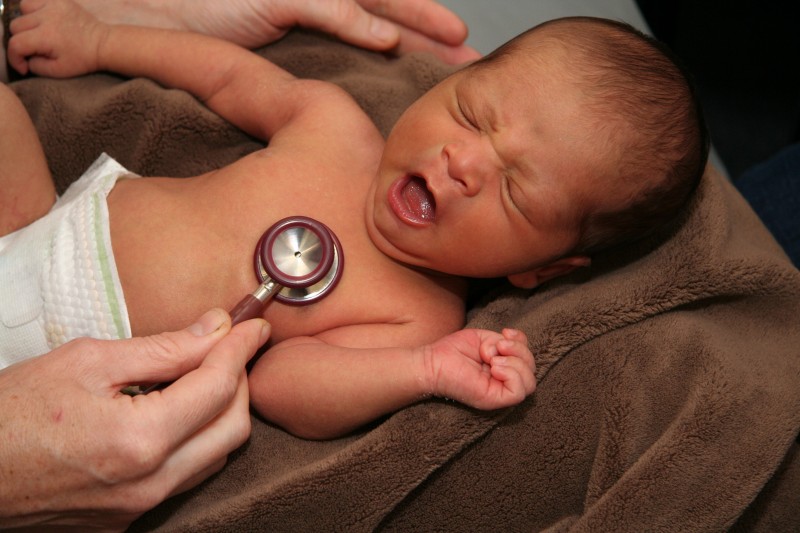The heart is an amazing organ. I work on heart development which makes me a little biased, but let me tell you why I think so. Every cell in your body requires oxygen and the way oxygen gets around is in blood. The heart is required for pumping blood that has been loaded up with oxygen to the tiniest capillaries in your brain and the very tips of your fingers and toes. Once the blood has given up its oxygen, it has to be pumped back from the furthest reaches of your body to your lungs to reload. The heart does all of that pumping. But wait- there’s more.
The heart is one of the first organs to form during embryonic development. It starts out as a simple tube but quickly folds up and pinches off into hollow chambers. Think of those balloon animals you got at birthday parties as a kid, that’s what your heart has to do only it has to work while it’s doing it! This is something like driving a car while building its engine at the same time.
Needless to say, heart development is very complicated and a lot of things can and do go wrong. In fact, congenital heart defects are one of the most common birth defects in America and the leading cause of birth defect-related death. Heart defects are present in 50 out of every 1000 live births. Apart from the emotional difficulties of dealing with these illnesses, they also come with a high economic cost. The lifetime costs associated with heart defects for all of the babies born in a year exceeds $1 billion.
While physicians have made a lot of progress in diagnosing and repairing these defects, little is known about what causes them. This is where basic science comes in. Scientists are hard at work trying to understand how the heart forms and what genes are involved in the process. We have to first understand normal development if we want to figure out what is going wrong when defects occur.
If scientists can identify the key genetic players at work in heart development, it could lead to improved screening and treatments. In order to shed light on congenital heart disease they need a lot of support which is just one more reason why we need to make sure the NIH has the funding it needs. The tiniest Americans are depending on it.


As someone who works with kids who have heart defects, I can attest to the physical and emotional toll it takes on them and their families. So I <3 heart research! A million $ of prevention is worth billions of $ in cure...
ReplyDeleteWell said! You have explained the complex issue of potential heart defects in children in a way that the lay person can begin to understand. Significant resources should be devoted to this field of research so that those "tiny Americans" you mention can grow up to be healthy and productive citizens. Ammu D
ReplyDelete